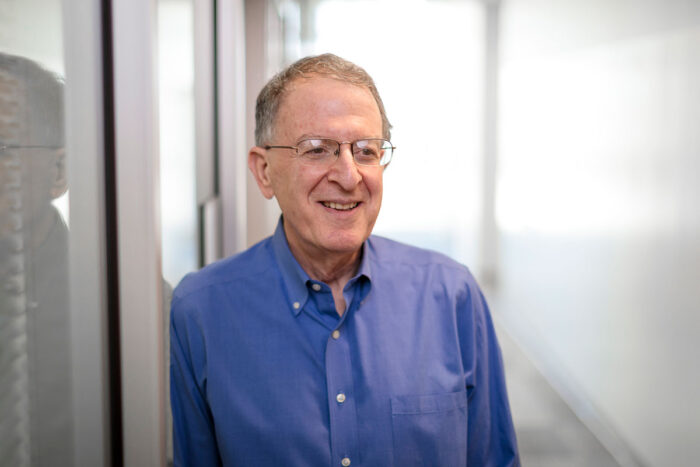Gordon receives Nemmers Prize
Gut microbiome pioneer recognized for outstanding contributions to medical science
 Matt Miller
Matt MillerJeffrey Gordon, MD, widely considered the father of the field of gut microbiome research, has received the 2024 Nemmers Prize in Medical Science from Northwestern University. Gordon leads the Edison Family Center for Genome Sciences & Systems Biology at Washington University School of Medicine in St. Louis.
Jeffrey I. Gordon, MD, of Washington University School of Medicine in St. Louis, has received the 2024 Mechthild Esser Nemmers Prize in Medical Science from Northwestern University. Gordon was selected for the prize by a jury of distinguished U.S. scientists for transforming the understanding of human health and how it is shaped by the gut microbiome.
Given every two years, the Nemmers Prize in Medical Science recognizes physician-scientists whose body of research represents outstanding achievements in biomedical science and has shown lasting significance. The prize in medical science is one of five Nemmers Prizes; the other four prizes recognize contributions in earth sciences, economics, mathematics and music.
As part of the award, Gordon will deliver a lecture Sept. 30 at Northwestern University, in Evanston, Ill.
The Dr. Robert Glaser Distinguished University Professor and director of the Edison Family Center for Genome Sciences & Systems Biology at Washington University School of Medicine, Gordon has spent his entire career at Washington University.
He is widely considered the father of the field of gut microbiome research. His work has greatly advanced understanding of human health and physiology, including how it is shaped by the gut microbiome and how noncommunicable diseases have previously unappreciated microbiome origins.
“I’m extremely grateful for this honor — specifically for the recognition that it gives to the efforts of the extraordinarily talented and creative people I have been fortunate enough to work with and learn from over the course of my career,” Gordon said. “It is also a wonderful recognition of the field itself and an endorsement of the potential it offers to develop new ways to support human wellness.”
Gordon’s work has shown how the gut microbiome functions as a microbial “organ” that has effects well beyond the wall of the gut. His group’s basic and translational studies have produced a widely adopted paradigm for identifying therapeutic targets in the microbiome and ways to deliberately repair disrupted microbiome properties that are associated with disease.
This work is epitomized by his team’s discovery, development and subsequent randomized controlled clinical trials of microbiome-directed therapeutic foods for childhood malnutrition, the leading cause of death in those under age 5. Gordon has a long-standing collaboration with Tahmeed Ahmed, MBBS, PhD, executive director of the International Centre for Diarrhoeal Disease Research in Dhaka. These microbiome-directed therapeutic foods have been characterized in Bangladeshi children with malnutrition and are set to be tested in East and West Africa and other countries in Southeast Asia. These large, multi-site clinical trials are being supported by the World Health Organization and the Bill & Melinda Gates Foundation.
“Jeff is a pioneering physician-scientist of immense accomplishment whose discoveries have revolutionized the way we think about complex environments like the gut microbiome,” said Eric G. Neilson, MD, the vice president for medical affairs and dean at Northwestern’s Feinberg School of Medicine. “We are honored to have him receive the Nemmers Prize in Medical Science, which recognizes his profound contributions to improving the health of humankind.”
The Gordon lab’s journey of discovery of how the microbiome influences health and disease will be the subject of a universitywide symposium April 25 and 26 in the Eric P. Newman Education Center. This symposium, titled “Eras of the Microbiome,” will celebrate the careers of those who have trained in his group, a number of whom have become leaders in the field of microbiome research. Twenty of his trainees will give lectures about their work.
Gordon has received numerous awards recognizing his extraordinary contributions to science and medicine, including last year’s Albany Medical Center Prize in Medicine and Biomedical Research, the Dr. Paul Janssen Award for Biomedical Research, and Spain’s Princess of Asturias Award for Technical and Scientific Research. Previous awards include the Balzan Prize, the British Royal Society’s Copley Medal, the Louisa Gross Horwitz Prize and the Keio Medical Science Prize.
He is a member of the National Academy of Sciences, the National Academy of Medicine, the American Academy of Arts & Sciences, and the American Philosophical Society.







